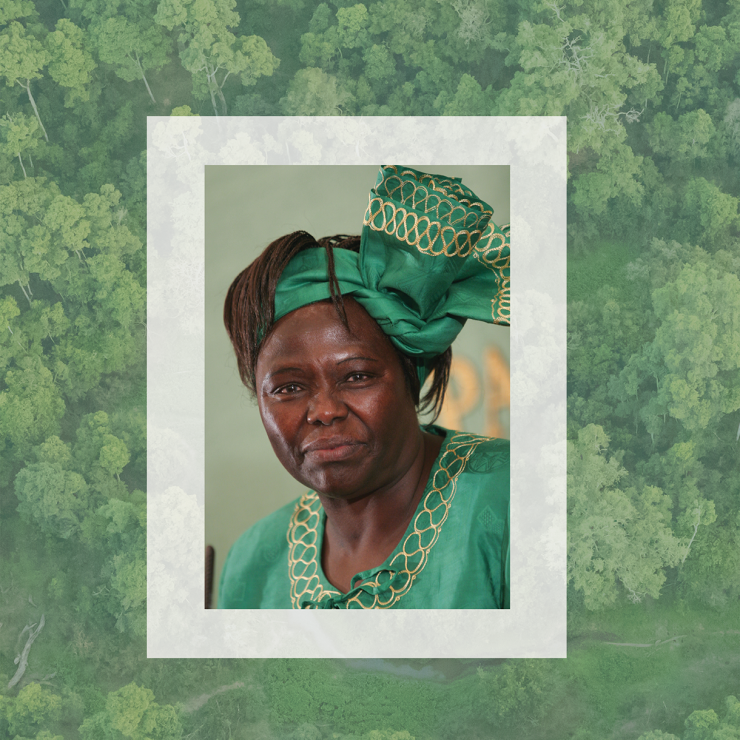As we continue to celebrate Black History Month and also with yesterday being the International Day of Women and Girls in Science, we want to spotlight the remarkable life and legacy of Wangari Maathai – an extraordinary environmentalist, political activist, and the first African woman to receive the Nobel Peace Prize.
Born in rural Kenya in 1940, Wangari Maathai’s journey was nothing short of inspirational. Her quest for education led her to the United States, where she earned a Bachelor’s Degree followed by a Master’s Degree in Biological Sciences. It was here that her understanding of environmental issues deepened, planting the seeds for her future endeavors. She returned to Africa where she pursued her doctorate and became the first Eastern African woman to receive a PhD, hers in veterinary anatomy.
In 1977, Maathai founded the Green Belt Movement, a pivotal moment in environmental activism. This grassroots organization wasn’t just about planting trees; it was a movement for environmental conservation and women’s rights. By mobilizing rural women to plant trees, Maathai addressed the critical issues of deforestation, soil erosion, and water scarcity, while simultaneously empowering women economically and socially.
Maathai’s activism transcended environmental advocacy. She became a fierce defender of democratic rights, often clashing with Kenya’s then-authoritarian regime. Her unwavering commitment to peace and sustainable development led to her Nobel Peace Prize in 2004, a testament to the profound impact of her environmental work on global peace and conflict resolution. In a statement from the Norwegian Nobel Committee on her selection, “Maathai stood up courageously against the former oppressive regime in Kenya. Her unique forms of action have contributed to drawing attention to political oppression—nationally and internationally. She has served as inspiration for many in the fight for democratic rights and has especially encouraged women to better their situation.”
Wangari Maathai passed away due to complications from ovarian cancer in 2011, but her legacy continue to be a beacon of hope and resilience. She taught us that environmental issues are not isolated – they are deeply intertwined with social, economic, and political factors. Her life’s work continues to inspire countless individuals, especially women and girls in science, to champion environmental stewardship and fight for social justice.
As we reflect on Wangari Maathai’s contributions, let’s honor her memory by emulating her courage and determination. In the face of our planet’s environmental challenges, let us continue planting the seeds of change, just as she did, for a greener, more equitable world.
As Maathai famously said, “It’s the little things citizens do. That’s what will make the difference. My little thing is planting trees.” What’s your little thing?
